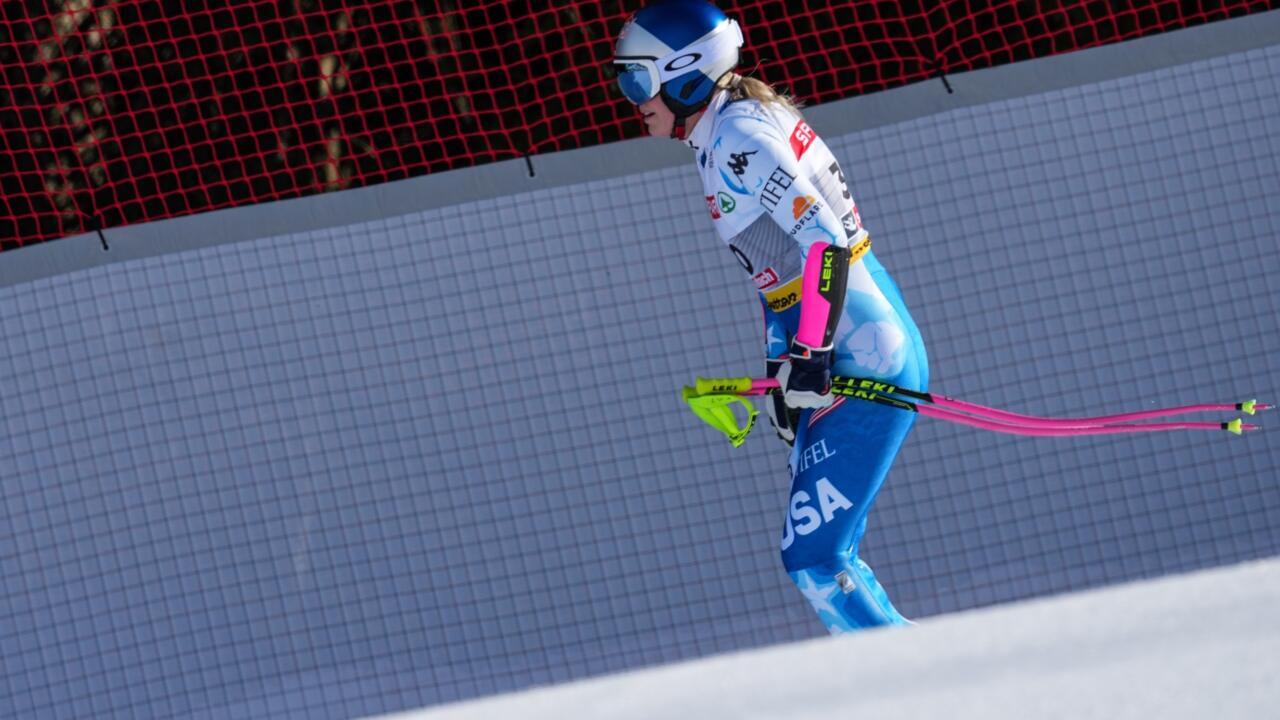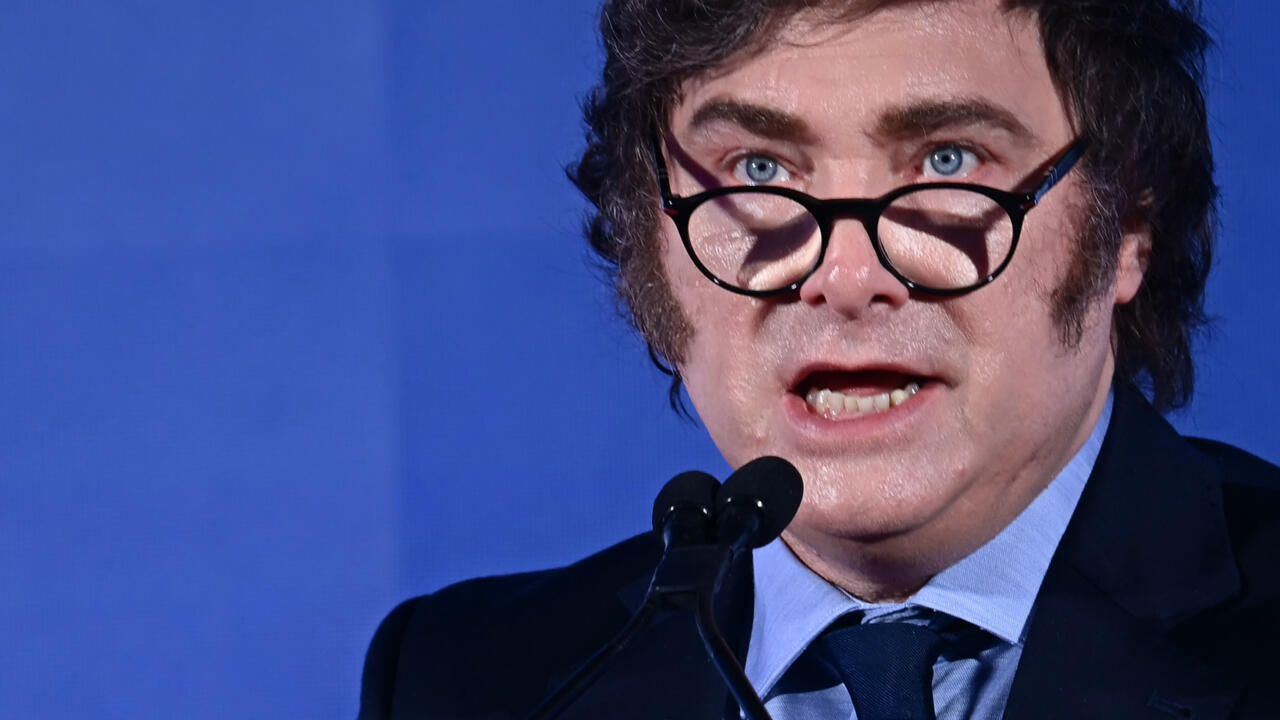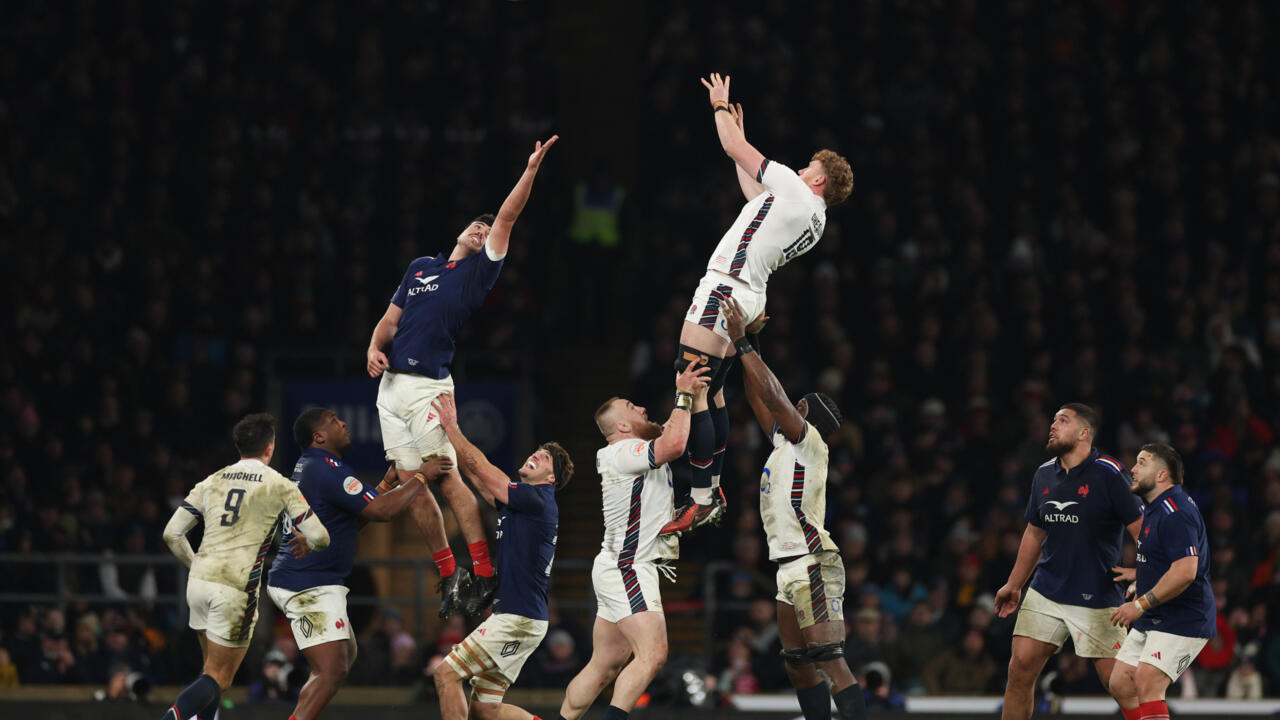Venier’s victory crowned a stunning start for the host nation.
A crowd of 15,000 was packed in around the finish area. Predominantly Austrian flags waved, cowbells rang and airhorns were blown as remixed, bass-heavy disco classics boomed out, intermingled with race commentary.
With only the final 10 gates visible to the fans packed into the temporary stands, the action higher up the Zwolferkogel mountain was relayed on two giant screens.
There were gasps as the racers hit speeds of 120km/h and negotiated jumps of 33 metres. As Venier’s intermediate times flashed up green, to signify she was fastest, the partisan crowd erupted in joy.
“It still sounds unreal,” said the newly-crowned world champion. “I was extremely nervous before the start and didn’t know how to deal with it. But apparently that was a good omen!”
Christian Scherer, CEO of the Austrian ski federation, added: “It’s a joy and we are really privileged to experience that and we are so happy, especially for the team, for the coaches and for Steffi, because it’s most important that the athlete can perform at their best on D-Day — and she did a great run.”
There were also groans as Ricarda Haaser, the first Austrian out of the start hut, came a cropper. She managed to get to her feet by herself and gingerly side-slid off the course with her concerned father looking on from the finishing area.
It was later confirmed that Haaser had ruptured the cruciate ligament and internal meniscus of her right knee.
Italy’s Sofia Goggia came in fifth, at 0.30sec, ahead of Germany’s Emma Aicher and 2018 Olympic champion Ester Ledecka of the Czech Republic, the latter making a mistake in the final third that undoubtedly cost her a podium place.
Switzerland’s big hope came in the shape of Lara Gut-Behrami, the reigning Olympic champion who also won world gold in 2021 as well as silver in 2013 and bronze in 2017.
But she followed up on her sixth place in the super-G at the last worlds with eighth, at 0.70sec.
© 2025 AFP






